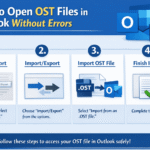New Chapters of Machine Learning Interviews
- 1 Interview Questions Categories
- 2 The most common questions asked in ML interviews
- 2.1 How is machine learning different from general programming?
- 2.2 Why do we take smaller values of the learning rate?
- 2.3 What is vector search?
- 2.4 A few more to prepare
- 3 Tips to ace your machine learning interview
- 3.1 Prepare to code
- 3.2 Combine theoretical concepts and real-world scenarios
- 3.3 Research the company
- 3.4 Focus on what you know
- 4 Miscellaneous takeaway
- 4.1 Attitude
- 4.2 Brain freeze
- 4.3 Knowing your interviewers
- 4.4 Questions
Machine Learning is one of the fastest-growing domains in the software and technology industry. More sectors are utilizing the power of Machine Learning to strengthen their businesses. It is just an add-on technology but has become a fundamental need for businesses to use Machine Learning algorithms to enhance their businesses and to give a personalized user experience.
Talking about job opportunities in the ML industry, you need to be well-prepared to crack the interviews as they are very tough. If you are planning to give a chance to this industry, you need to be prepared thoroughly.
Programming and technical questions are very common for ML roles. Rather than trying to snap you out with left-field questions, interviewers use interviews to gain your fundamental knowledge about ML concepts and methods like NLP, deep learning, and random sampling.
Now this is your chance to shine in front of all applicants and get selected for the job applied. Certifications and experience in ML can open doors to jobs such as Data Scientist, Cloud architect, Cybersecurity Analyst, Machine Learning Engineer, and more.
Interview Questions Categories
| Categories | Question type |
| Coding | 23% |
| Machine Learning | 16% |
| Research | 14% |
| Screen | 12% |
| Case Study | 12% |
| Behavioural | 7% |
| Project Management | 5% |
| System Design | 5% |
| Presentation | 3% |
| Statistics | 3% |
The most common questions asked in ML interviews

How is machine learning different from general programming?
Talking about general programming, we get the data and the logic. By using them, we create the answer. However, in ML, we have the data and the answers and we let our machine learn the logic behind it so that the same logic can be used for answering future questions. Moreover, there are instances when writing logic is not possible. This is where ML becomes a saviour.
Why do we take smaller values of the learning rate?
Small values of learning rate will help the training process to intersect slowly and gradually toward global optimum. This is because the smaller learning rate gives small updates to the model weights, which can help to make sure that the results are more stable and precise.
If the learning rate is very large, the model weights might get updated very quickly. This can potentially cause the training process to overshoot the global optimum. Therefore, to avoid this error and get the best weights this is necessary to use small values of learning rate.
What is vector search?
Vector search leverages Machine Learning to capture the context and meaning of unstructured data such as images and text. It is more frequently used for semantic search. It finds similar data using ANN algorithms. As compared to traditional search, vector search gives more relevant and faster results. When vector search transforms all data into embeddings, vector databases store and handle data using vector embedding
A few more to prepare
- Explain – True positive, False positive, True negative, and False negative in the Confusion Matrix.
- When dealing with a substantial amount of data and prioritizing accuracy, which machine learning or deep learning model should you consider the most appropriate choice?
- What is Neural Networks?
- What do you understand by Overfitting/Underfitting in ML?
- Any opinion on bias-variance tradeoff
- How would you handle missing data in a dataset?
- If your model demonstrates strong performance on the training data but performs poorly on the validation data, what implications can you draw from this?
- Given a dataset with numerous variables, some of which have significant correlations that you are aware of, what action would you take in the process of feature engineering for such data?
Tips to ace your machine learning interview
To ace an ML interview, you need to be well-prepared. Other than practising the above questions, here are a few tips to make a great impression and show your actual potential:
Prepare to code
While specific requirements and format can vary from company to company, it is very common for ML interviews to include coding tests.
Practice coding by coding exercises, implementing ML algorithms, and getting to know the common frameworks and libraries in the industry such as PyTorch, sci-kit-learn, or TensorFlow. Moreover, understanding the maths and the theory behind ML algorithms will help you implement and explain your code during the interview.
Combine theoretical concepts and real-world scenarios
Ensure that you are connecting your answers with real-world scenarios, especially ones that reflect your own work. Interviews usually look for knowledge as well as experience, and both things can be reflected well if you combine theoretical concepts with real-world scenarios.
Additionally, it is beneficial for you to showcase your learnings and skills. You should show how driven you are about improving yourself.
Research the company
Researching the interviewing company will help you respond well. It will also help you understand more about the company’s work culture and values and share how much you are aligned with their mindset.
Focus on what you know
Every candidate has individual strengths and experiences in machine learning. Emphasising your current knowledge allows you to showcase your unique expertise, whether it’s a deep understanding of a specific algorithm, mastery of data preprocessing techniques, or expertise in a particular domain. This approach sets you apart from other candidates and highlights your distinct qualifications.
Prioritizing your current knowledge doesn’t mean avoiding the new concepts. Instead, it demonstrates your solid foundational skills and your enthusiasm for continuous learning and growth. By expressing your eagerness to adapt and learn while underscoring your current expertise, you present yourself as a well-rounded candidate with a strong commitment to ongoing improvement.
Miscellaneous takeaway
Attitude
Apart from skills and knowledge, attitude is very important. You need to understand common traps that the mind can hold you into. Although it is tough at that moment, treat the whole process as a learning experience rather than an interview.
Brain freeze
Your brain goes numb if you get a challenging question. The best treatment here is to admit it rather than try to hide it. Just admit that you are just about to have a brain freeze.
Knowing your interviewers
Before your interview, you would be given the names of the people interviewing you. Ensure to study them and their expertise. Knowing a few things can help you target your answers better.
Questions
Use the time to understand more about the team and the role. Everyone is given a chance to ask questions – please!! Never ask – When can I expect to hear back?

















